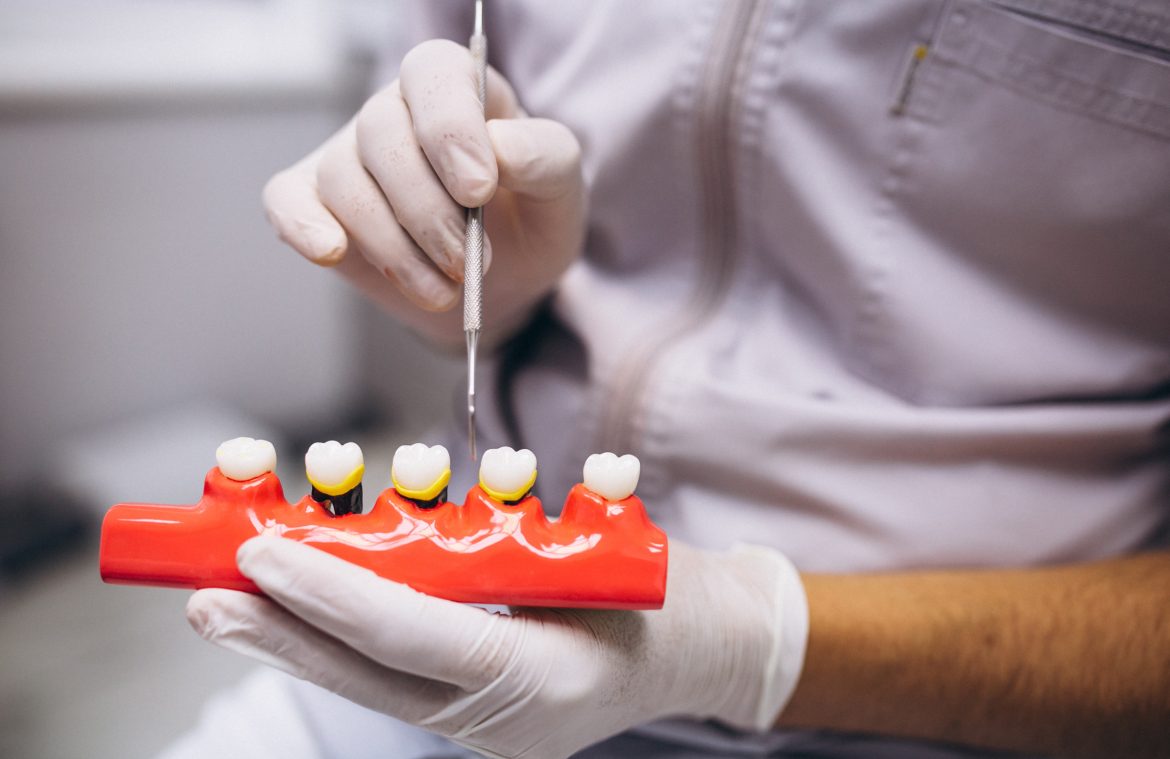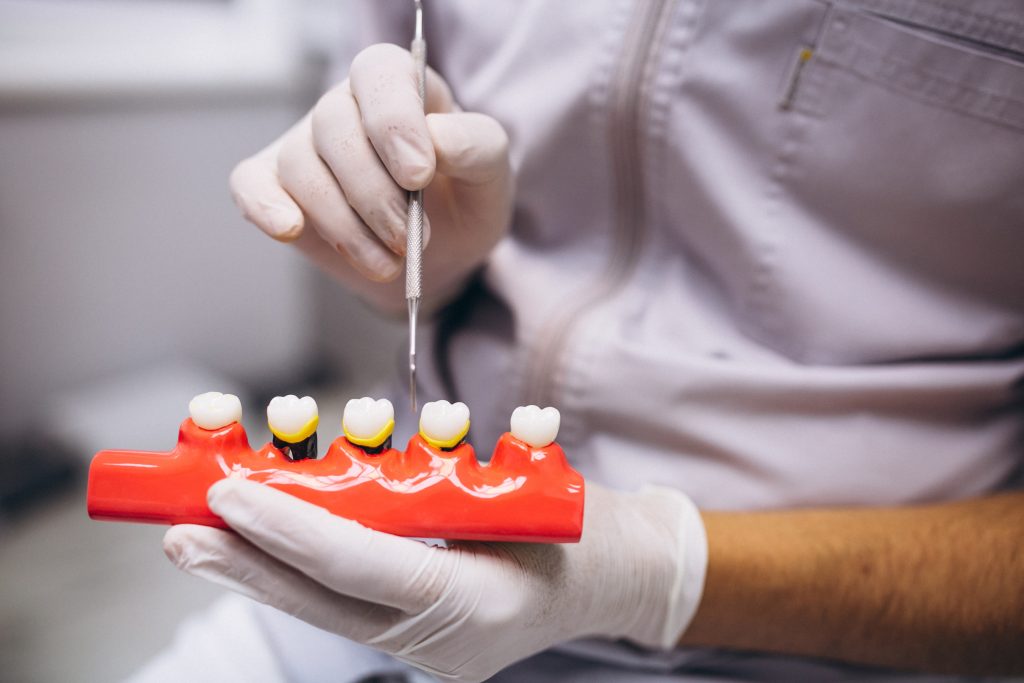

A dental crown is a cap that resembles a tooth used to replace a weak or broken tooth to restore its strength, size, form, and look. When a tooth has had extensive decay, a fracture, or has undergone a root canal, dental crowns are frequently utilized.
Types of Dental Crowns:
- Porcelain or Ceramic Crowns: These crowns are popular for their natural appearance, as they closely match the color of natural teeth. They are commonly used for front teeth where aesthetics is a priority.
- Metal Crowns: These are made from alloys like gold, palladium, or base metals like nickel or chromium. Metal crowns are highly durable and can withstand heavy biting and chewing forces, but they are typically used for molars at the back of the mouth due to their metallic color.
- Porcelain-Fused-to-Metal (PFM) Crowns: These crowns offer the strength of metal and the natural appearance of porcelain. The metal structure provides durability, while the porcelain exterior improves aesthetics.
- Zirconia Crowns: Zirconia is a newer material that is both strong and aesthetic. It provides the durability of metal crowns and the appearance of porcelain, making it a popular choice for both front and back teeth.
- Resin Crowns: These crowns are less expensive but also less durable because they are made of composite resin. They are frequently utilized as interim crowns or when budget is an issue.
Benefits of Dental Crowns:
- Repairs Tooth Function: By covering broken teeth, crowns allow people to eat and speak normally again.
- Improves Appearance: Crowns can enhance the look of your smile by covering discolored or misshapen teeth.
- Durability: Crowns are long-lasting and can provide years of protection when properly cared for.
- Strengthens Weakened Teeth: Crowns protect weakened teeth from further damage or fracture.
A dental crown is an excellent way to restore both the function and aesthetics of your teeth. With the proper material and professional placement, crowns can provide a durable, natural-looking solution to many dental issues.










